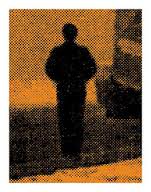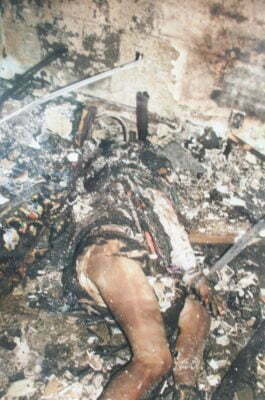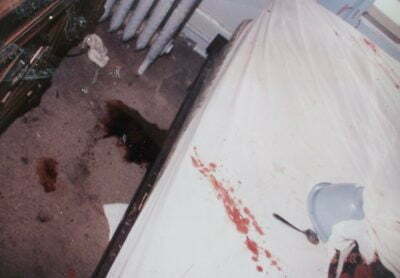Found Photos in Detroit

At The Museum of Contemporary Photography
Archeology in a broken city and relics of animosity.
Failed seems like a harsh word to describe a city that millions of people still live in, but Arianna Arcara and Luca Santese bring heart wrenching evidence of Detroit’s brokenness in their project Found Photos in Detroit, 2009- 10. Damaged photos, as neglected and abandoned as the parts of Detroit where they were taken, will fill the viewer with questions about the lives to whom these snapshots once belonged. From bruises on sullen faces to bloodstained bodies, this collection secretes the stench of numerous violent crimes, and raises more questions when considering the nature of how these photos and letters were obtained.

The Italian artists: Arianna Arcara and Luca Santese focus on the shifting conditions of contemporary urban life through effects of changing global economies. The artists spent time in Detroit to paint a picture of the well know desolation of this motor city who has lost its industry. Arcara and Santese found many abandoned photos, letters, and other personal items during their visit. The artists selected the most powerful and moving items from what they found, and reclaimed them as photography.
Arianna Arcara and Luca Santese have raised a lot of question in Found Photos of Detroit, about property and privacy rights because the photos were Police files, and crime scene evidence. All of these found objects had been neglected and abandoned. If the state had wanted to keep all of these files and evidence confidential, it could have instead of abandoning it. The fact that this sensitive material was so carelessly abandoned, points to the state’s attitude of neglect.

Photography can be a very deceptive art form, for while the photograph is a quicker and more reliable device for recording, it by no means can prevent staging fictitious scenes and scenarios. So much is staged, that it is hard to trust photography as being as honest as it might appear to be. When photography is used in applications other than art, its nature changes. These photos have clearly been taken as recording devises for crimes, and this adds a lot of weight to the content. While the reclamation of this work is controversial, it is strong social statement, which is only strengthened by the very thing which make it controversial.
Viewing the aftermath of violence, even in a day and age where media desensitizes the masses from violence, can still have a powerful effect, especially when it becomes evident to the viewer, that what they are looking at raw snapshots into an atrocious reality. This exhibition draws its power from the fact that these images were not staged by the artists, but were found photographs from crime scenes, and have been abandoned by the negligent local authorities. The content in these photos is enough to demonstrate the destitution of Detroit, but the photographs as found objects are in their physical form, artifacts and testaments to neglect, disrespect, and abandonment. Found photos as art, can add a whole new level of truth to photography.
A well curated show, very worthwhile
Highly recommended.
Samuel Erza Fisch
Museum of Contemporary Photography, 600 S Michigan Ave, Chicago, IL 60601
